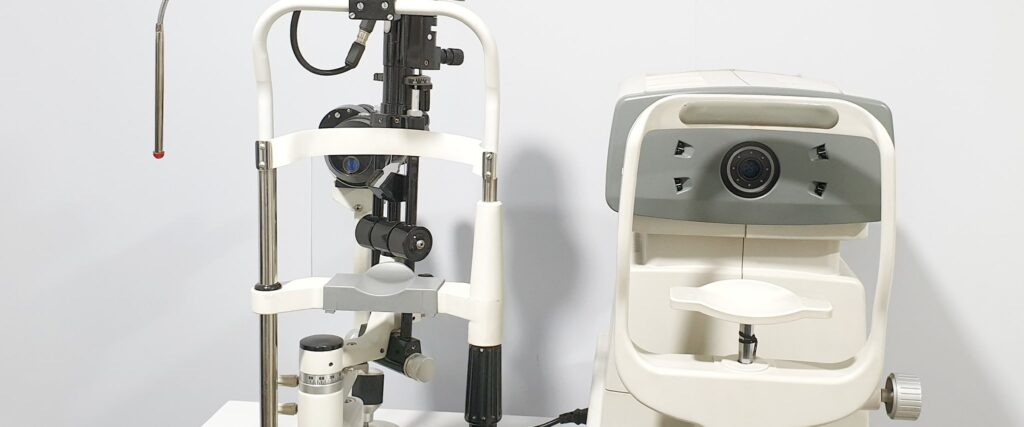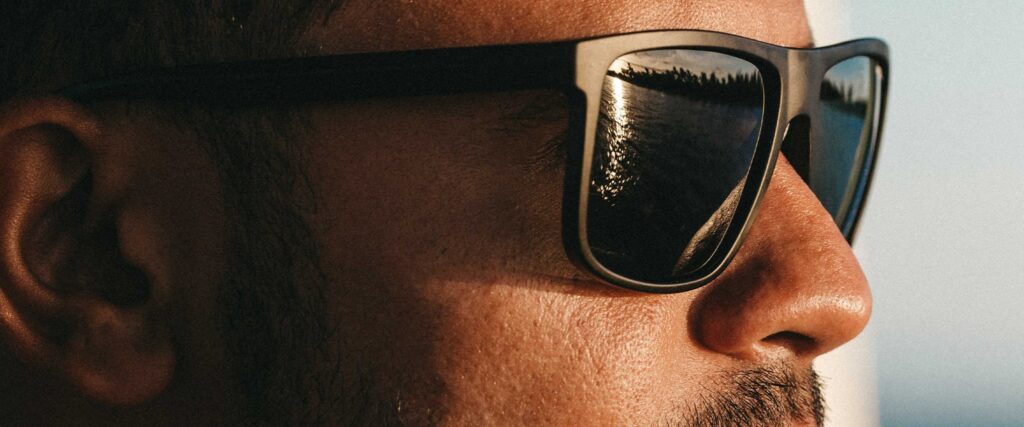Are you concerned that your eyesight might worsen over time? You’re not alone, it’s actually a common worry. Unfortunately, too often, people delay taking action until it’s too late. That’s why National Eye Health Week, backed by the NHS and other healthcare organisations, is the perfect time to spread the word.
Organised by Eye Health UK, this public health campaign is dedicated to helping people protect their vision and overall wellbeing. It’s your chance to learn more about the importance of eye health and why regular sight tests are essential. Take the first steps to protect your future eyesight—from early detection to prevention—because your vision matters.
Can vision loss be prevented?
Did you know in the UK around two million people are living with vision loss? This has a serious impact on their everyday life and mental health. Yet, for half of the people with sight loss, it’s completely preventable, with regular eye exams, timely treatment from health professionals like optometrists and routine health checks to monitor eye and general health.

Why do I need to have regular eye tests?
An eye exam can detect several eye conditions and other underlying health problems. It’s essential that you book frequent eye tests with your optician. Eye examinations are not just for getting a new prescription but will also reveal how healthy your eyes are. They can even be used to identify early signs of diseases like diabetes, glaucoma and also high blood pressure.
Early detection is key to maintaining healthy eyes. Regular check ups should be prioritised as part of your overall health care routine. For most adults, an eye test every two years is recommended, although this may vary for some individuals, especially for over 70s and people who suffer from diabetes and glaucoma. Watch our Ask the Optician video to find out more about the importance of frequent eye tests.
National Eye Health Week is a crucial reminder to stay on top of your eye care. If you are due an eye test, don’t forget to book one in with your optician soon.
How to maintain healthy eyes
There are a few simple ways you can safeguard your vision for the future. Small lifestyle changes can have a notable impact and significantly improve your way of life.

Protect your eyes from the sun
To maintain good eye health, make sure you wear a pair of sunglasses when exposed to bright sunlight to avoid any damage to your sight. Overexposure to UV rays can result in eye conditions like cataracts, macular degeneration and even tumours around the eyelids.
At Glasses Direct, we have various sun tints for different purposes, all with 100% UVA/B protection. These include:
- Dark tints: Protect you from strong sunlight and block 75% of light.
- Gradient tints: Dark at the top, fading to clear. They’re ideal for driving.
- Polarised sunglasses: Filter out reflected glare and prevent eye strain.
- Transitions® lenses: Adapt to changing light. They’re clear indoors, dark outside.
If you’d prefer a standard pair of glasses with UV protection, we also have a range of lens packages which you can upgrade to from our basic clear lenses. The Gold, Platinum and Diamond packages all have an anti-UV and anti-reflective coating to protect your eyes all year round. However, we would still recommend sunglasses, especially if you spend a lot of time outside.

Eat a healthy, balanced diet
It goes without saying that a healthy, balanced diet will help you maintain good health in general. There are many delicious foods that are thought to improve your eyesight.
Omega-3 fatty acids from fish like salmon, sardines and tuna, or plant-based sources like flaxseeds and walnuts, can lower the risk of specific eye conditions and support overall eye function.
Leafy greens, foods rich in vitamin C, vitamin A and vitamin E all play a role in maintaining strong vision and preventing common health problems. Eating “the rainbow” by enjoying a variety of colourful fruit and vegetables will also help ensure your eyes are getting the nutrition they need.

Manage screen time
In today’s digital age, screen time can affect eye health more than ever. Following the 20-20-20 rule can help reduce eye strain and support your over wellbeing. To carry this technique out, all you have to do is every 20 minutes, look at something 20 feet away for 20 seconds. Make sure you’re also taking regular breaks away from digital screens to give your eyes time to rest.
Why is National Eye Health Week important?
NEHW reminds us to nurture our eyesight and keep our eyes safe. Good vision can be maintained fairly effortlessly. Stay healthy and keep active. Wear the appropriate eyewear and always prioritise getting an updated prescription. For more information, head to our eye health hub.
If you want to get involved and raise awareness, you can follow @NationalEyeHealthWeek on Instagram and join the conversation on social media. If you want to get involved, you can choose to participate in one of many events or webinars led by health care professionals throughout NEHW.




